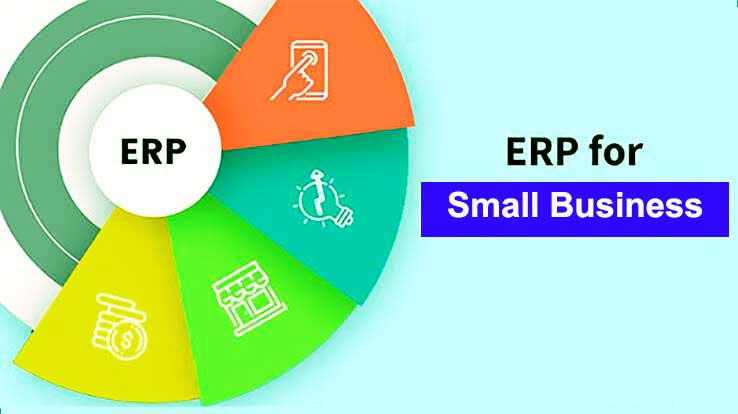In the fast-paced world of small business, the efficient management of resources, streamlined operations, and growth opportunities are top priorities. Enterprise Resource Planning (ERP) software solutions offer small businesses a powerful tool to achieve these objectives.

This article explores the realm of ERP for small businesses, delving into its features, benefits, and how it can be a catalyst for success and expansion.
Understanding ERP for Small Businesses
What Is ERP for Small Businesses?
ERP for small businesses is a category of software solutions designed to help smaller enterprises manage and streamline their core functions. These solutions integrate various aspects of business operations, from finance and inventory to human resources and customer relationship management. They provide a unified platform for data management and analysis, empowering small businesses to make informed decisions and optimize their operations.
The Relevance of ERP for Small Businesses
In the competitive world of small business, ERP software can be a game-changer. It simplifies processes, improves efficiency, and enables businesses to adapt quickly to market changes, which is vital for success and growth.
Key Features of ERP for Small Businesses
Integrated Management
One of the primary features of ERP for small businesses is integrated management. It centralizes data and processes, allowing business owners to have a holistic view of their operations, enabling informed decision-making.
Financial Management
Small businesses often struggle with financial management. ERP solutions provide tools for financial tracking, budgeting, and expense management, making it easier to maintain financial stability and growth.
Inventory Control
Inventory management is a crucial aspect of small business operations. ERP systems help optimize inventory levels, reduce carrying costs, and ensure that products are available when needed.
Scalability
ERP solutions for small businesses are scalable. They can adapt to the changing needs of a growing enterprise, making them a long-term investment.
The Benefits of Implementing ERP for Small Businesses
Enhanced Efficiency
ERP solutions significantly enhance efficiency by automating processes, reducing manual work, and minimizing errors. This results in cost savings and improved productivity.
Informed Decision-Making
Small businesses need to make swift and informed decisions. ERP software provides real-time insights, helping owners and managers base their choices on accurate data.
Growth Opportunities
The scalability of ERP solutions for small businesses enables them to expand and seize growth opportunities. As businesses grow, the system can evolve with them.
Competitive Advantage
Small businesses can gain a competitive edge by using ERP software. It streamlines operations, reduces costs, and enhances customer service, all of which contribute to standing out in the market.
Implementing ERP for Small Businesses
Vendor Selection
Selecting the right ERP software vendor is crucial. Business owners should look for a vendor with a strong reputation, excellent customer support, and a software solution that aligns with their small business’s needs.
Employee Training
Proper training for employees is essential for a smooth transition to ERP software. This ensures that the team can utilize the system effectively.
Data Migration
Migrating existing data to the new system should be executed with precision to prevent data loss or corruption. Small businesses should engage experienced professionals to manage this process.
Conclusion
ERP for small businesses is a transformative tool, offering streamlined operations, informed decision-making, and the potential for significant growth. To thrive in the competitive landscape of small business, consider implementing ERP software in your operations. It has the potential to revolutionize how you manage resources, optimize processes, and ultimately drive the success and expansion of your small business.